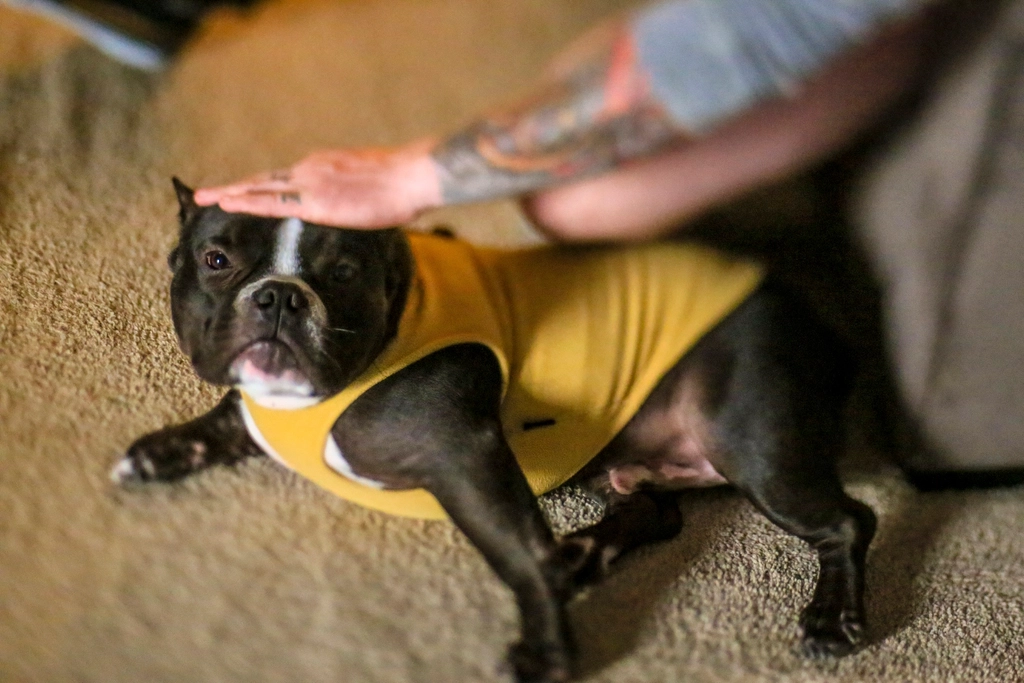Have you ever walked past a park and seen a tiny puppy tugging its owner along, all wiggly excitement and boundless energy? It’s adorable, isn’t it? But beneath that cuteness, there’s a whirlwind of responsibility that not everyone talks about—especially for our senior friends. As someone who spends my days surrounded by wagging tails and muddy paws, I know the joy dogs bring, but I also know the challenges. If you’re a senior or love someone who is, you might be wondering if a puppy is the right fit. Let’s look at why that answer isn’t always a simple “yes,” and what other heartwarming options are out there.
The Energy Gap: When Puppies Outpace Their People
Puppies are like little rockets—zooming, chewing, and bouncing off the walls with endless gusto. They need hours of playtime, training, and mental stimulation. For many seniors, keeping up with a puppy’s energy can be physically demanding, sometimes even risky if mobility or balance is a concern.
I’ve seen more than one sprightly pup nearly trip their loving owner during a game of fetch. It’s not just about walks; it’s about being ready for midnight zoomies or sudden dashes after a squirrel. For seniors who cherish their routines and may have joint pain or limited stamina, this mismatch in energy can quickly turn the dream of puppyhood into a daily struggle.
Training Troubles: The Reality of Raising a Good Dog
Every puppy comes with a blank slate, which sounds lovely until you remember that means housebreaking, teaching manners, and lots (and lots!) of patience. Training isn’t just about teaching a dog to sit or stay; it’s about consistency, timing, and sometimes, a lot of bending over.
For seniors who might have issues with mobility or memory, sticking to a strict training schedule can feel overwhelming. I’ve met wonderful folks who tried their best, only to find themselves frustrated by accidents on the carpet or a puppy who just won’t stop nipping. It’s normal to feel defeated, but it’s also a sign that maybe a puppy isn’t the best fit.
Health Considerations: When Needs Don’t Match Up
Puppies are curious by nature and will eat almost anything, from socks to garden mulch. This means constant supervision and quick reactions if something goes wrong. For seniors managing their own health issues, such constant vigilance can be exhausting.
Imagine recovering from a knee surgery while a puppy chews the couch or tries to dart out the door. Some medications can make people dizzy or tired, which isn’t ideal when a little furball is always underfoot. It’s important to think about how a new puppy’s needs might overlap or clash with your own health needs.
Financial Surprises: The Hidden Cost of Cute

We all know puppies need food, but the real expenses add up with vet visits, vaccinations, spaying or neutering, training classes, and supplies. Unexpected emergencies—like a swallowed toy or a sudden illness—can hit hard, especially for those on a fixed income.
Some seniors I’ve worked with were surprised by how quickly costs stack up. It’s not just about the basics; it’s about the what-ifs. Puppies can be accident-prone, and the bills can catch anyone off guard. Planning ahead is key, but not always possible.
The Gift of Time: Thinking Long-Term
Puppies often live 12 to 15 years, sometimes even longer. While it’s a joy to imagine all those years together, it’s also a serious commitment. For seniors, it’s wise to consider what might change in the next decade—health, housing, or even the ability to travel.
I’ve helped seniors find loving homes for their pets when life took an unexpected turn. It’s heartbreaking for both the person and the dog. Thinking honestly about the future isn’t pessimistic—it’s the most loving thing you can do for yourself and any animal you welcome into your life.
Behavioral Cues: Reading the Signs of Overwhelm

Dogs are smart, and they pick up on our moods and stress. If you’re feeling frazzled, puppies can act out—barking, chewing, or even becoming anxious themselves. Over time, this can create a cycle where both person and pup feel unhappy and misunderstood.
Pay attention to your feelings and your puppy’s behavior. Are you losing patience? Is your dog acting out more than usual? These can be signs it’s time to reassess and maybe seek help or consider other options. It’s not a failure—it’s honest self-care.
Prevention Tips: Setting Everyone Up for Success
If your heart is set on a puppy, preparation is everything. Consider enlisting family, hiring a dog walker, or joining a local training class with extra support. Puppy-proof your home to prevent accidents and create a daily routine that works for your energy level.
But remember, you don’t have to go it alone. There’s a whole community of dog lovers, trainers, and pet sitters who understand and want to help. Sometimes, the best way to love a puppy is to admit when you need a hand.
What I Recommend Instead: The Joy of Senior Dogs

Here’s my favorite piece of advice: if you want the company of a dog, consider adopting a senior or adult dog. These wonderful souls are often overlooked at shelters but make the gentlest, most grateful companions. They’re usually house-trained, calmer, and perfectly content with a leisurely stroll and a cozy nap by your side.
I’ve matched many seniors with older dogs, and the bond they share is something special—like two wise spirits finding comfort in each other. Senior dogs have so much love left to give, and they’re just waiting for someone to notice. Isn’t it beautiful when two hearts in need find each other?
What kind of furry friend would brighten your days and match your pace?





